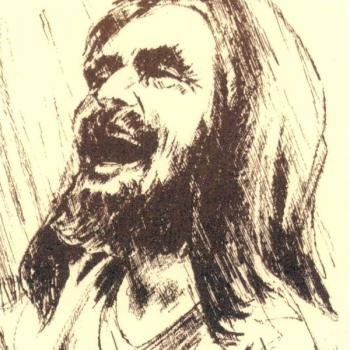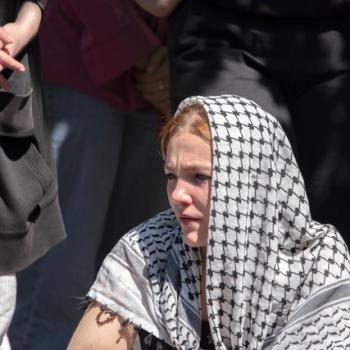Also, images in the Bible of the future Paradise include animals. The wolf and the lamb together, the shepherd and the kid, the lion and the calf are laying down together in paradise. So I'm assuming they will be there!
I imagine many Christians would agree that animal advocacy is important, but maybe not as important as "people advocacy"/social justice issues, such as adoption/foster care, homelessness, issues of poverty, discrimination, etc. What do you say to those people? Is animal advocacy a lesser cause?
I don't think we can really rank compassion and justice. It's also important for us to realize how many of these issues are connected to each other. So, for instance, dog fighting is closely connected to issues of race and class and violence in many communities. The process of factory farming creates a food system that is unhealthy for everyone. It means some people will starve because so much grain is being used to feed animals in factory farms. It also means that antibiotics that could be used to fight disease in humans are being overused in these confined animals, then those antibiotics become less effective. It's all connected when we come right down to it.
Your book provides an extensive resource section including organizations that advocate for animals. It's a great source for individuals and church groups that may want to get involved in any number of issues you raise in your book. (As an aside, I think animal-care issues could provide wonderful intergenerational opportunities for service in churches!) What are some of your favorite organizations?
I've recently worked closely with the Humane Society of the United States. They have a growing faith-based outreach program that I think is very important. It is already having a big impact and I think it will have an even greater impact in the future.
I also think that people who are interested and passionate about animals need to be involved locally with real animals—volunteering at animal shelters, educating people about the food they are eating and how those animals were raised, helping educate about wildlife and creating wildlife friendly spaces wherever appropriate. All of those ways of being engaged locally are so important.
So, I have to ask—how many animals do you have at home? I also know you're involved with a local rescue shelter, as well. What is your role there?
Jack and I have two dogs—Codi and Cooper—both dogs adopted from local shelters. Cooper is a bully breed mix, a goodwill ambassador for those often maligned dogs. We only have two of our own because of the time we put in with dogs at the shelter and with coordinating foster dogs. So I usually have about ten dogs in foster homes that I'm coordinating.
I'm very involved with our city's animal shelter, the municipal shelter that has to take every dog or cat (and skunk and owl and more) that ends up there. We try to get as many of those animals back out into good homes as we can. My particular role is volunteer dog rescue coordinator, so I try to get dogs into breed rescue groups or into foster homes. I also just do general volunteering—I feed the forty or so dogs there one day a week, manage the petfinder site, do adoption events, help with fundraising events. It's a wonderful, though sometimes very difficult, part of my life.
What do you hope people take away from you book? What action(s) would you like to see as a result of your book?
My primary hope is that at least some people will reconsider who they think we are and who other animals are. In other words, can we include them in our circle of compassion? The book does give some specific ideas for religious communities, but the ideas can be adapted for any individual or community. A few small steps can make a huge difference for animals. One example, in the U.S. in 2010 over 9 billion animals were slaughtered for food. If each American changed their diet so one day a week they didn't eat meat, that means 1.3 billion fewer animals in that system each year. That's a significant number! So small steps, steps that place compassion at the center of our lives, can change the lives of huge numbers of animals.
Visit the Patheos Book Club for more resources on The Friends We Keep: Unleashing Christianity's Compassion for Animals.





